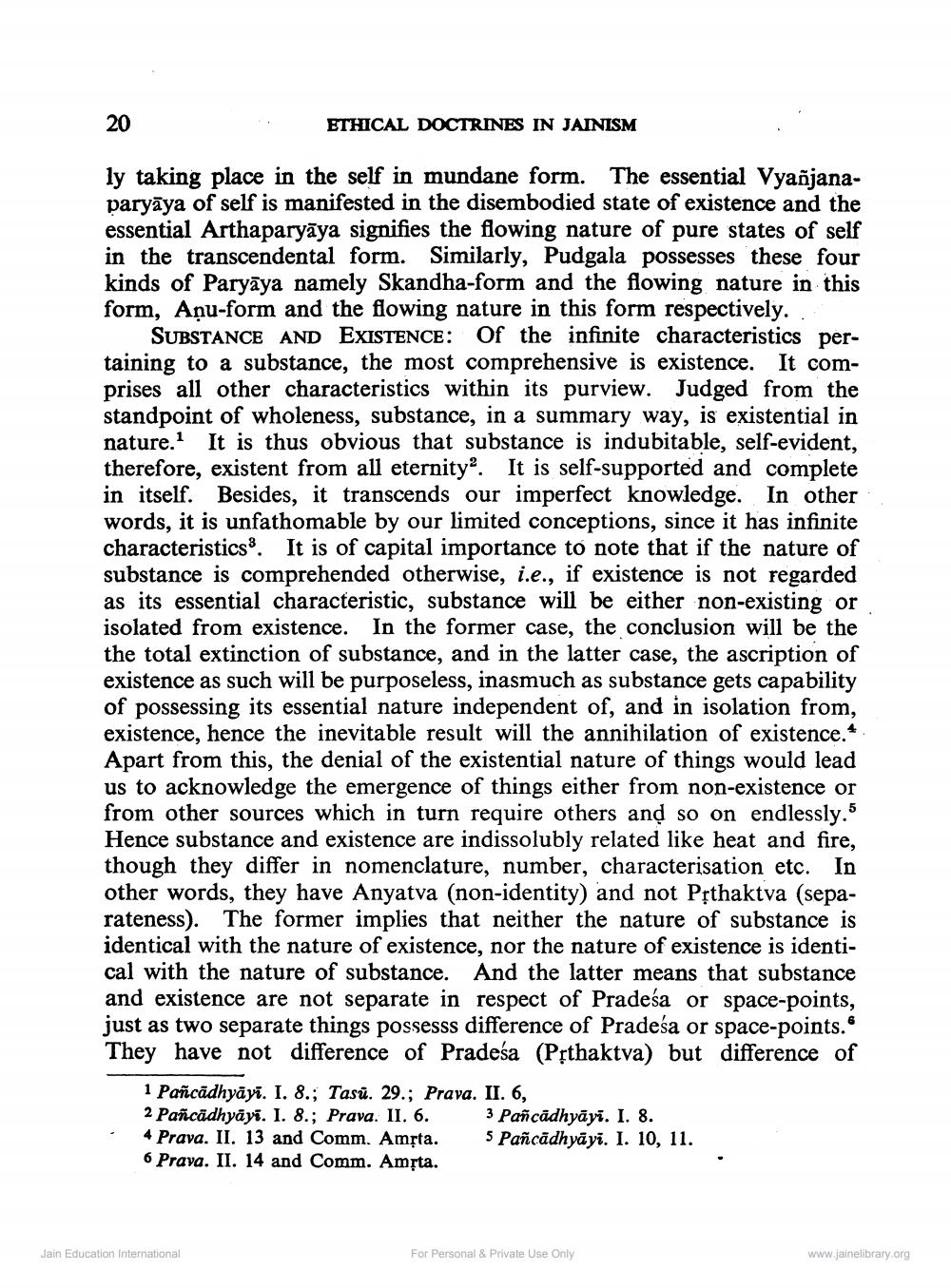________________
20
ETHICAL DOCTRINES IN JAINISM
ly taking place in the self in mundane form. The essential Vyañjanaparyāya of self is manifested in the disembodied state of existence and the essential Arthaparyāya signifies the flowing nature of pure states of self in the transcendental form. Similarly, Pudgala possesses these four kinds of Paryāya namely Skandha-form and the flowing nature in this form, Anu-form and the flowing nature in this form respectively.
SUBSTANCE AND EXISTENCE: Of the infinite characteristics pertaining to a substance, the most comprehensive is existence. It comprises all other characteristics within its purview. Judged from the standpoint of wholeness, substance, in a summary way, is existential in nature. It is thus obvious that substance is indubitable, self-evident, therefore, existent from all eternity. It is self-supported and complete in itself. Besides, it transcends our imperfect knowledge. In other words, it is unfathomable by our limited conceptions, since it has infinite characteristics. It is of capital importance to note that if the nature of substance is comprehended otherwise, i.e., if existence is not regarded as its essential characteristic, substance will be either non-existing or isolated from existence. In the former case, the conclusion will be the the total extinction of substance, and in the latter case, the ascription of existence as such will be purposeless, inasmuch as substance gets capability of possessing its essential nature independent of, and in isolation from, existence, hence the inevitable result will the annihilation of existence.* Apart from this, the denial of the existential nature of things would lead us to acknowledge the emergence of things either from non-existence or from other sources which in turn require others and so on endlessly.5 Hence substance and existence are indissolubly related like heat and fire, though they differ in nomenclature, number, characterisation etc. In other words, they have Anyatva (non-identity) and not Pţthaktva (separateness). The former implies that neither the nature of substance is identical with the nature of existence, nor the nature of existence is identical with the nature of substance. And the latter means that substance and existence are not separate in respect of Pradesa or space-points, just as two separate things possesss difference of Pradeśa or space-points. They have not difference of Pradesa (Prthaktva) but difference of
1 Pañcādhyāyi. I. 8.; Tasū. 29.; Prava. II. 6, 2 Pañcâdhyāyi. I. 8.; Prava. II. 6. 3 Pascadhyāyi. I. 8. 4 Prava. II. 13 and Comm. Amộta. 5 Pañcādhyāyī. I. 10, 11. 6 Prava. II. 14 and Comm. Amfta.
Jain Education International
For Personal & Private Use Only
www.jainelibrary.org




